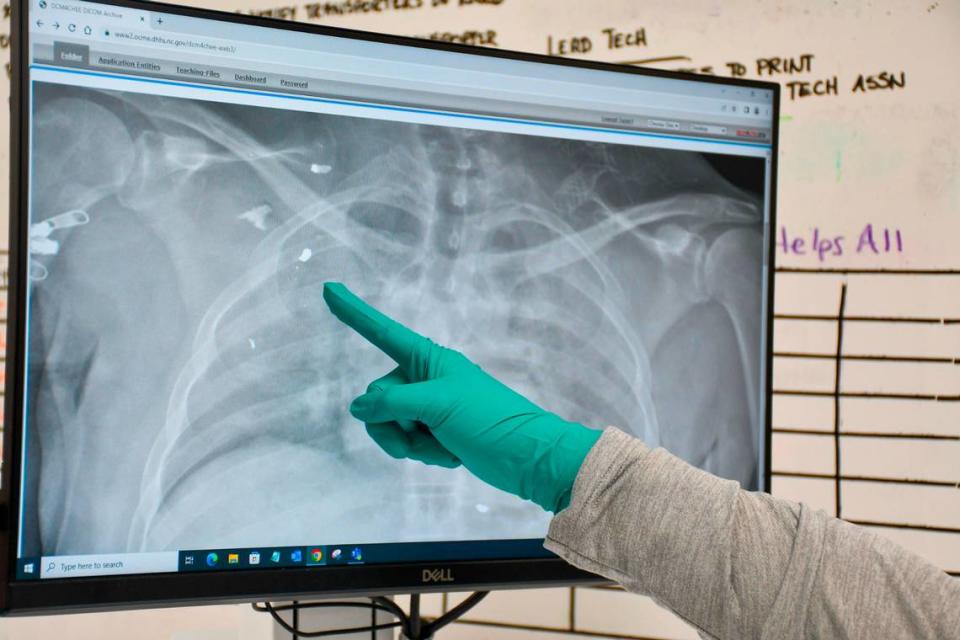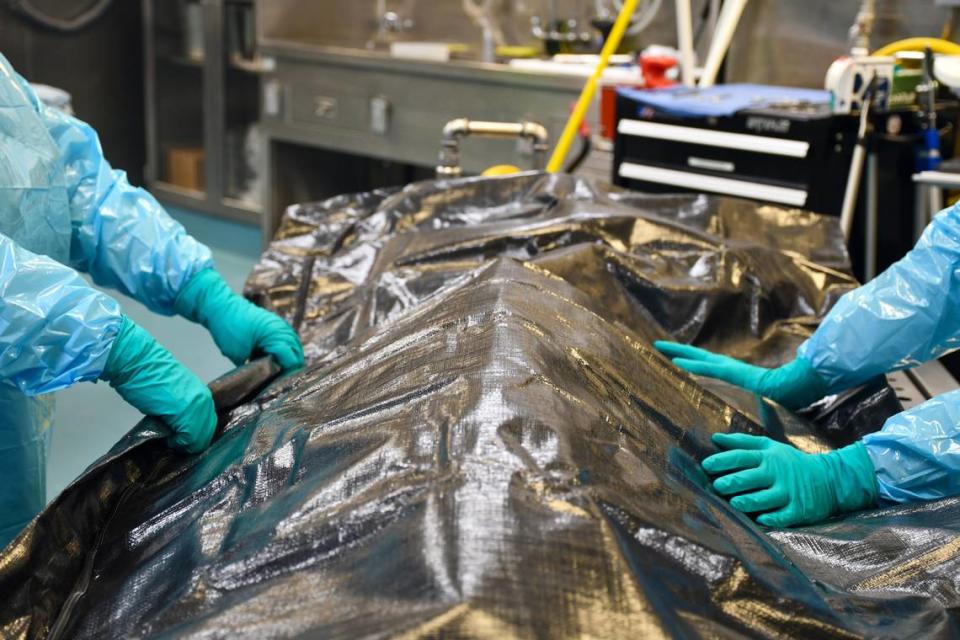‘We’ve got to do better’: Lawmakers plan more funding to tackle NC autopsy crisis
Top North Carolina lawmakers say help for North Carolina’s overburdened autopsy system is on the way.
Their budget proposals would ensure pathologists who perform autopsies in North Carolina are better compensated for their work — a change they hope will help fix staff shortages and clear up a massive backlog.
But the spending proposals don’t provide money for new pathologist positions in the state’s overwhelmed chief medical examiner’s office, which has been strained by a surge in cases. And the head of the state employees association said the legislative plans don’t appear to be a long-term fix.
A recent investigation by The Charlotte Observer and The News & Observer found that lengthy delays in the completion of autopsy reports have led to financial crises and other problems for many grieving North Carolina families.
When people in North Carolina die unexpectedly, it usually takes more than 20 weeks for the required medical investigations to be completed. And in well over 1,000 cases since 2020, it has taken more than a year.
Those delays prevent families from getting the death certificates they need to access life insurance and funds they are entitled to inherit. It also leaves many family members with a burning question: Why did their loved ones die?
Prosecutors and police, meanwhile, say the logjam has delayed charges against dangerous criminals, leaving them free to victimize others.
In an interview earlier this year, state Department of Health and Human Services Secretary Kody Kinsley didn’t mince words.
“Bottom line, plain and simple, the medical examination system is in crisis,” he said.
Lawmaker: Higher payments should ease backlog

State Sen. Jim Burgin jokes that the pathologists on “CSI” are always able to wrap up their autopsies before the hour-long television show concludes. But what’s happening in North Carolina, he says, is no laughing matter.
“It takes us weeks and weeks and weeks,” he said. “Something is wrong here.”
The system is backlogged chiefly because there are too many bodies and too few pathologists and toxicologists to handle the load, the newspapers’ investigation found.
Medical examiner cases grew more than 30% over the past three years. Drug overdose deaths, which soared 58% from 2019 to 2022, are largely to blame.
Forensic pathologists at the chief medical examiner’s office in Raleigh conduct autopsies for 34 North Carolina counties. The state also contracts with eight independent autopsy centers, which cover the remaining 66 counties.
But the state pays those centers just $2,800 per autopsy — less than half the average cost, according to DHHS. Officials say it has been hard to persuade additional pathology centers to perform autopsies for the state because they are paid so little.
Burgin, a Harnett County Republican who co-chairs the Senate health and human services appropriations committee, said he and other legislative leaders are trying to tackle the problem.
“We need to be able to turn around an autopsy in a matter of days, not months,” he said. “People need closure.”
The current budget bills, still being debated by lawmakers, would increase contractor payments to $5,800, enough to cover the cost of an autopsy.
As it stands, the county where a deceased person lived already covers about two-thirds of that bill, with the remainder paid by the state. The House and Senate have not yet agreed on how much of the increase counties would be asked to cover, but lawmakers in the two chambers say they hope to reach a deal on the budget before the end of the month.
Burgin hopes the larger payments will encourage more contract centers to perform autopsies for the state, lightening the load on pathologists who work for the chief medical examiner’s office in Raleigh.
Those pathologists perform, on average, 557 autopsies apiece each year — more than twice the number recommended by a national accrediting group.
And staff shortages have only made the problems worse: Four of the state’s 13 forensic pathology positions are now vacant. (The office used to have 16 positions, but the agency recently eliminated three of them to use the salary money to recruit and retain other forensic pathologists, DHHS said.)
Autopsy delays put ‘strain on families’
Better pay for state pathologists would help address the problems, North Carolina officials say.
The starting annual salary for forensic pathologists in North Carolina has been about $177,500, lower than what’s offered by South Carolina, Tennessee, Kentucky and West Virginia, DHHS staff say. Nationally, the average pay for pathologists is $339,000, according to a recently released Medscape report on physician compensation.
Rep. Larry Potts, a Davidson County Republican who co-chairs the House health and human services appropriations committee, said legislators have agreed to a change that will allow DHHS to pay pathologists more by using unspent payroll money — commonly known as lapsed salary funds — tied to any vacant positions within the medical examiner’s office.
That, coupled with the increased money for contracted autopsies, could make an “enormous difference” for families and law enforcement, he said.
“I hope we’re on the road to a solution,” he said.
But Ardis Watkins, executive director of the State Employees Association of North Carolina, said using lapsed salary funds to pay pathologists more won’t fix the problems long term. Filling vacancies will leave the agency with less lapsed salary money, she noted, so staffing problems will likely resurface.
The state has the resources simply to budget more money for pathologist salaries, she said, nodding to North Carolina’s $3 billion surplus.
“My proposal would be not to just put more air in the tire that’s leaking — it would be to fix the tire,” she said. “…If we were a state on a razor-thin budget, I’d understand. But we are not.”
Asked whether the legislative budget proposals would adequately address the state’s autopsy backlog, a state DHHS spokesperson said the agency hopes the final budget “will raise the autopsy fee and include tools and funding to recruit and retain a strong workforce at the NC Office of the Chief Medical Examiner — all of which were included in Governor Cooper’s recommended budget.”

Amidst all of this, some lawmakers have proposed adding requirements for additional autopsies — a change that would put more strain on the overburdened office.
One bill introduced this year, for instance, would require autopsies in each case where a prosecutor concludes there’s probable cause for a “death by distribution” case. That bill was approved by the House and now sits in a Senate committee.
The House budget proposal would provide funding for two staff members who would conduct toxicology screenings on the bodies of children whose deaths are being investigated.
It would also provide $2 million in recurring annual money to build and staff a new regional autopsy center to serve Union and some surrounding counties.
But neither chamber’s budget proposal provides money for additional forensic pathologists in Raleigh.
Burgin, who also co-chairs the state Senate health care committee, said the leaders of the health committees in both chambers agree on the need to tackle the autopsy backlog.
He said he can’t guarantee that the current proposals will fix the problems, but said: “I’m going to stay on it to help the families get closure. We’ve got to do better.”

